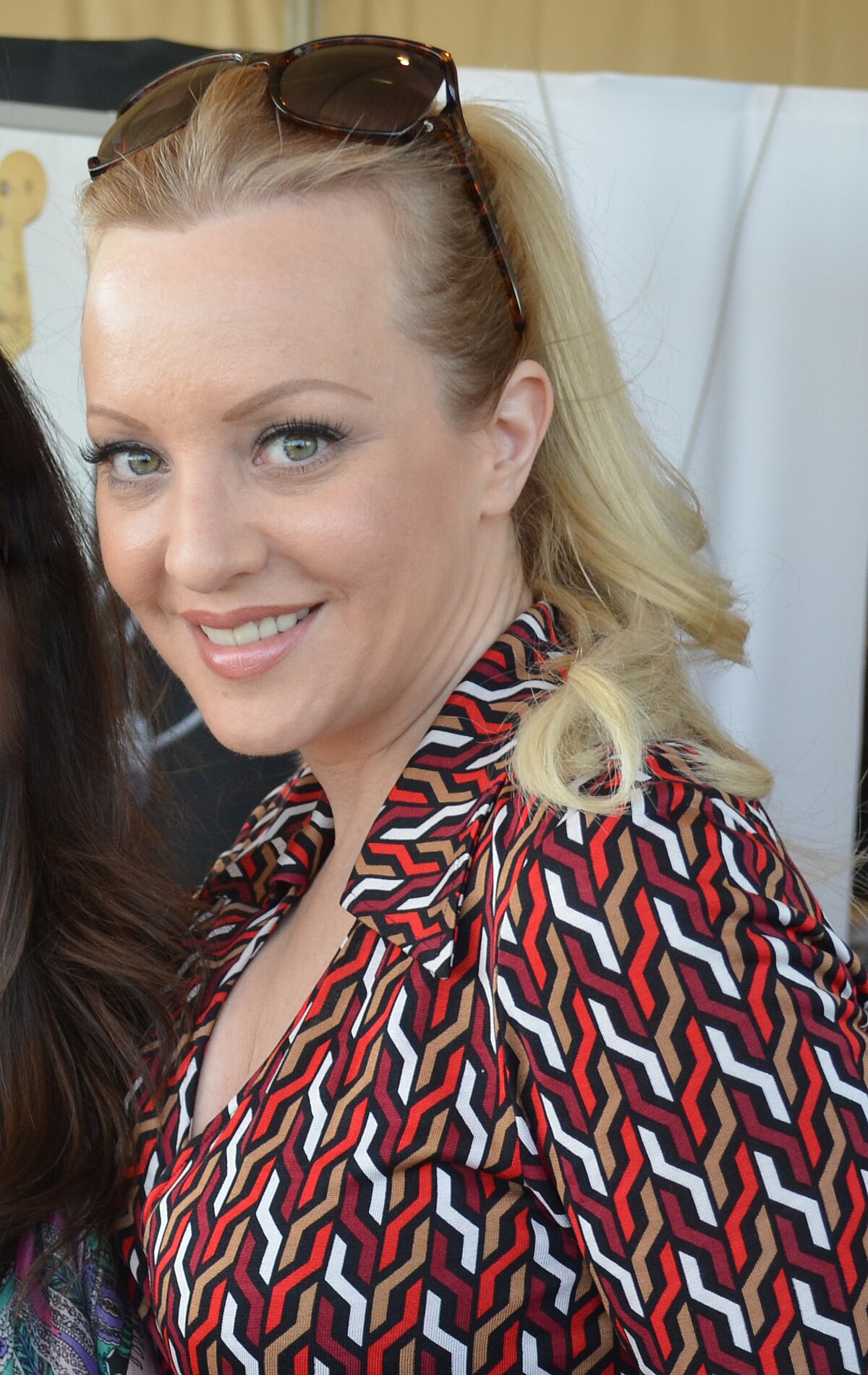Wendi McLendon-Covey Husband - Exploring Connections And Personal Stories
When we think about public figures and their private lives, it is almost as if there is a natural curiosity that often draws us in. People frequently wonder about the individuals who share their lives with those in the public eye, hoping to get a glimpse into the everyday happenings that shape their world. This interest, you know, extends to various personalities across different fields, creating a tapestry of stories that capture our attention. Yet, it is important to remember that while the initial query might be about one person, the threads of information can sometimes lead to very different narratives.
Our interest in the partners of well-known individuals often comes from a simple human desire to connect, to see how personal relationships fit into the broader picture of someone's public identity. It is a way, in some respects, to feel a little closer to the people we see on screens or hear about in the news. However, the information available to us, the actual stories we encounter, might not always align with the exact person we are thinking of. This can lead to a slight shift in focus, where the available details guide our exploration to an unexpected, yet still compelling, account.
This piece, then, while prompted by curiosity about a specific individual's life partner, will actually draw its observations from a distinct set of details provided to us. These details happen to pertain to another person named Wendi, offering insights into a different kind of personal story that has come into public discussion. We will be looking at those particular observations, trying to understand the human elements within the statements and questions presented, rather than assuming any additional context beyond what was given.
Table of Contents
- Biography and Personal Details: A Glimpse into Wendi's Background
- What Drives Speculation About Personal Moves?
- How Do Public Appearances Shape Perceptions?
- The Weight of Public Opinion: Is There a Verdict in the Court of Public Thought?
- Legal Minds and Public Scrutiny: What Happens When Worlds Collide?
- Family Ties and Financial Foundations: A Look at Support Systems
- Do Small Details Make a Big Difference?
- Observations from a Difficult Day: The TV Installation Story
Biography and Personal Details: A Glimpse into Wendi's Background
When we piece together information about someone, we are often trying to build a picture of their life, what makes them who they are, and the circumstances that surround them. From the given observations, we can gather a few specific points about this Wendi. She is, for instance, a professional who works in the legal field, possessing the knowledge and insights that come with being a lawyer. This background, you know, suggests a certain way of thinking, a careful consideration of situations, and an awareness of legal implications. She also has children, which tells us a little about her personal life and responsibilities, perhaps influencing decisions about where she might choose to live or what she prioritizes. Her family connections also seem to play a rather significant part in her life, particularly her father, who is described as someone with considerable financial resources. This suggests, more or less, a certain level of comfort and security in her upbringing and ongoing life. The observations also mention a brother, who appears to be a supportive presence, even giving gifts. So, these details, while not a full life story, paint a basic sketch of a person with a particular career, family ties, and a certain financial standing. It is interesting, actually, how just a few pieces of information can start to form a picture in our minds.
Personal Details
| Detail | Information from Text |
|---|---|
| Profession | Lawyer |
| Family Status | Has children, ex-husband, brother |
| Father's Status | Millionaire |
| Financial Outlook | Will always have plenty of money |
| Social Connections | Close with Dasha Zhukova, introduced Rupert to Dasha’s mother |
| Physical Description | Blue eyes, reportedly wore teal eye contacts |
What Drives Speculation About Personal Moves?
It is quite common, isn't it, for people to wonder about the reasons behind someone's choices, especially when those choices involve big life changes like moving to a new place. The observations mention a theory about why Wendi might be considering a move to Texas, if those whispers, wherever they originated, hold any truth. The main thought behind this idea is her desire for her children to be near family members already living there. This seems, basically, like a very human motivation, doesn't it? The wish to keep loved ones close, to ensure children have strong connections to their wider family circle, is a sentiment many people can relate to. It speaks to the deep-seated value we place on kinship and the support systems that family can provide. So, when rumors about a potential relocation surface, and they are linked to such a personal and understandable reason, it is almost natural for people to consider them. The idea that a mother would want her kids in close reach of their relatives is a powerful one, often shaping where someone decides to set down roots. This kind of speculation, you know, often stems from trying to find a relatable, human explanation for someone's reported actions.
The very existence of such theories, even if they are just whispers, highlights how we often try to make sense of the choices people make, particularly when those choices involve family. It is a way, in a sense, to connect with the personal side of a situation that might otherwise seem distant. The notion of proximity to family, especially for children, is a deeply felt need for many, and it often plays a significant role in where individuals choose to reside. This particular Wendi, if these ideas are true, would be acting on a very common and understandable impulse. People, you see, often project their own values and experiences onto others, and the desire for family closeness is a universal sentiment. So, the mere mention of family ties as a reason for a potential move gives the speculation a very human foundation, making it feel, perhaps, a little more believable to those who hear it. It really shows how much we value these personal connections.
How Do Public Appearances Shape Perceptions?
When someone is in a situation where they are under intense public or official scrutiny, the way they present themselves can become a significant point of discussion. The observations suggest that Wendi felt it was necessary to put on a significant display to try and convince the authorities that she had no idea what had happened to Dan. This implies, you know, a very high-stakes moment, where every word and gesture could be interpreted. The idea of a "performance" here is not about acting in a play, but rather about consciously managing one's presentation in a difficult circumstance. It speaks to the immense pressure one might feel when trying to convey innocence or ignorance in the face of serious questions. Such a situation could easily make anyone feel as though they are on a stage, with critical eyes watching their every move. It is a moment where the stakes are incredibly high, and the desire to be believed is, quite understandably, very strong. So, the description of a "major performance" points to the human effort involved in trying to control how one is perceived during a crisis.
The text also suggests that this particular display was likely practiced over and over again in her mind, perhaps hundreds of times. This idea of mental rehearsal really paints a picture of the emotional and psychological preparation that might go into facing such a serious inquiry. It is not just about saying the right words, but about how those words are delivered, the expressions that accompany them, and the overall demeanor one projects. Thinking through scenarios repeatedly is a very human way of trying to gain some control in an uncontrollable situation, to prepare for the unexpected, and to ensure one's message comes across as intended. This kind of internal practice, you see, speaks to the immense stress and the weight of the moment, highlighting the human desire to be ready for something truly challenging. It is a powerful reminder that even in moments of great difficulty, people often try to prepare themselves as best they can, even if that preparation is just in their own thoughts. This kind of mental exercise is, honestly, a common way people try to cope with pressure.
The Weight of Public Opinion: Is There a Verdict in the Court of Public Thought?
It is a common thing for people to form their own opinions when a difficult or tragic event becomes public knowledge. The question posed in the observations, asking who believes Wendi Adelson is responsible for her ex-husband being killed and the father of her children taken away, highlights this very human tendency to weigh in on situations. This kind of question, you know, surfaces in public discussions, reflecting the collective thoughts and feelings that arise when serious accusations are made. It is not a formal legal judgment, but rather a reflection of the court of public thought, where individuals process information and come to their own conclusions, sometimes based on limited details. This Wendi, like anyone in a similar position, would likely be subject to this kind of intense public scrutiny, where people openly ponder their involvement or lack thereof. The very asking of such a question points to the powerful role that public sentiment plays, even outside of official proceedings. It is a reminder that personal stories, especially those involving profound loss, often become subjects of widespread discussion and speculation.
The human desire to understand, to assign blame, or to find a clear narrative in complex events is very strong. When a person's life is touched by something as devastating as the loss of a former partner under suspicious circumstances, it is almost inevitable that people will try to piece together what happened and who might be involved. The question about Wendi's culpability is a direct example of this. It shows how people, basically, try to make sense of a difficult situation, and how they often look for someone to hold accountable. This kind of public questioning can be incredibly burdensome for the person at its center, as they face not only formal inquiries but also the constant murmurs of public judgment. It underscores the idea that reputation and public perception are significant, and that once a question like this is put out into the world, it can take on a life of its own. So, the public asking of whether someone is guilty for such a profound act reflects a deep human need for justice and clarity, even if that clarity is sought through informal means. This is, truly, a heavy burden for anyone to bear.
Legal Minds and Public Scrutiny: What Happens When Worlds Collide?
When someone has a professional background in law, they are typically very aware of how legal processes work and the kinds of actions that could have unintended consequences. The observations point out that Wendi, being a lawyer herself, would likely find it very unusual to visit or speak separately with Charlie's lawyer solely to prepare for a trial. This is because, you know, such an action could potentially provide more information for the prosecution, which is something a legal professional would want to avoid. It speaks to the careful calculations that lawyers often make, constantly weighing the risks and benefits of every interaction, especially when a case is ongoing. For someone with legal training, the idea of inadvertently creating more evidence for the opposing side would be a significant concern. This highlights the particular challenges faced by individuals with legal expertise when they find themselves personally involved in situations that draw legal attention. It is a delicate balance, trying to navigate personal circumstances while remaining acutely aware of legal implications. So, the observation about her legal background suggests a heightened sensitivity to how her actions might be perceived in a courtroom setting.
The situation described suggests a tension between personal involvement and professional understanding. A lawyer, by their very nature, is trained to think about how things look, how they might be interpreted by others, and what potential ramifications could arise from certain behaviors. This particular Wendi, given her profession, would presumably be very attuned to these considerations. The idea of speaking separately with a co-defendant's legal representative, outside of formal channels, could be seen as risky from a legal standpoint, as it might create an appearance of coordination or provide new avenues for investigation. This kind of scenario, you see, brings into focus the complex interplay between one's personal life and their professional knowledge, especially when those two aspects intersect in a public and legally sensitive way. It is a subtle point, but it underscores the specific lens through which a legal mind might view such interactions. This is, honestly, a very real concern for anyone in the legal profession.
Family Ties and Financial Foundations: A Look at Support Systems
Family relationships often form the bedrock of a person's life, providing both emotional and, at times, practical support. The observations mention that Wendi is very close with Dasha Zhukova and, in fact, introduced Rupert to Dasha's mother, who is now his current girlfriend. This suggests, basically, a network of personal connections that extend beyond immediate family, indicating a social circle where relationships are nurtured and perhaps even facilitate new ones. These kinds of social ties can be very important, offering comfort, companionship, and a sense of belonging. It shows that even amidst difficult public scrutiny, there are personal relationships that continue to thrive and evolve. The ability to maintain such connections, and even to play a part in forming new ones for others, speaks to a certain social ease and engagement. So, these details offer a glimpse into the broader human connections that exist in this Wendi's life, showing that she is part of a wider social fabric. It is a reminder that personal connections, you know, are a significant part of anyone's existence.
Beyond social connections, the observations also touch upon a very concrete aspect of support: financial stability. It is stated that Wendi's father is a millionaire and that she is his only child. This implies, quite clearly, a background of considerable wealth and the security that comes with it. The text further suggests that she will always have plenty of money, which is a significant factor in anyone's life, offering a certain freedom from common worries. This kind of financial foundation can provide a sense of stability, allowing for choices and opportunities that might not be available to others. It means that, whatever other challenges she might face, a lack of financial resources is not likely to be one of them. This aspect of her background, you see, speaks to a privileged position that can influence many aspects of a person's life, from where they live to the resources they can access. It highlights the role that inherited wealth can play in shaping an individual's circumstances, providing a layer of security that is, really, quite substantial.
Do Small Details Make a Big Difference?
Sometimes, the smallest observations can spark a lot of discussion and curiosity, especially when someone is under a public microscope. The text mentions that Wendi Adelson reportedly wore teal eye contacts at one point to make her already blue eyes seem brighter. This is, you know, a very specific detail about personal appearance. The question then arises whether she wore them during her testimonies. This kind of query highlights how people often look for subtle cues or changes in appearance, trying to interpret what they might mean in a high-stakes situation. It is a very human tendency to scrutinize every aspect of someone's presentation when they are facing intense questioning. The idea that a detail as minor as eye color or the use of contacts could become a point of interest shows how deeply people try to analyze and understand what they are seeing. It speaks to the way individuals attempt to piece together a picture, even from seemingly insignificant fragments of information. So, the focus on eye contacts illustrates how even small personal choices can become subjects of public discussion and speculation when someone is under a magnifying glass.
The human mind, it seems, is always looking for patterns or inconsistencies, especially when trying to assess credibility or understand a person's state of mind. The question about the eye contacts during testimony is an example of this. It suggests a search for something, perhaps a hint about how she wanted to be perceived, or whether there was an attempt to present a particular image. It is almost as

Pictures of Wendi McLendon-Covey

Wendi McLendon-Covey - Biography, Height & Life Story | Super Stars Bio

Wendi McLendon-Covey - Wikipedia